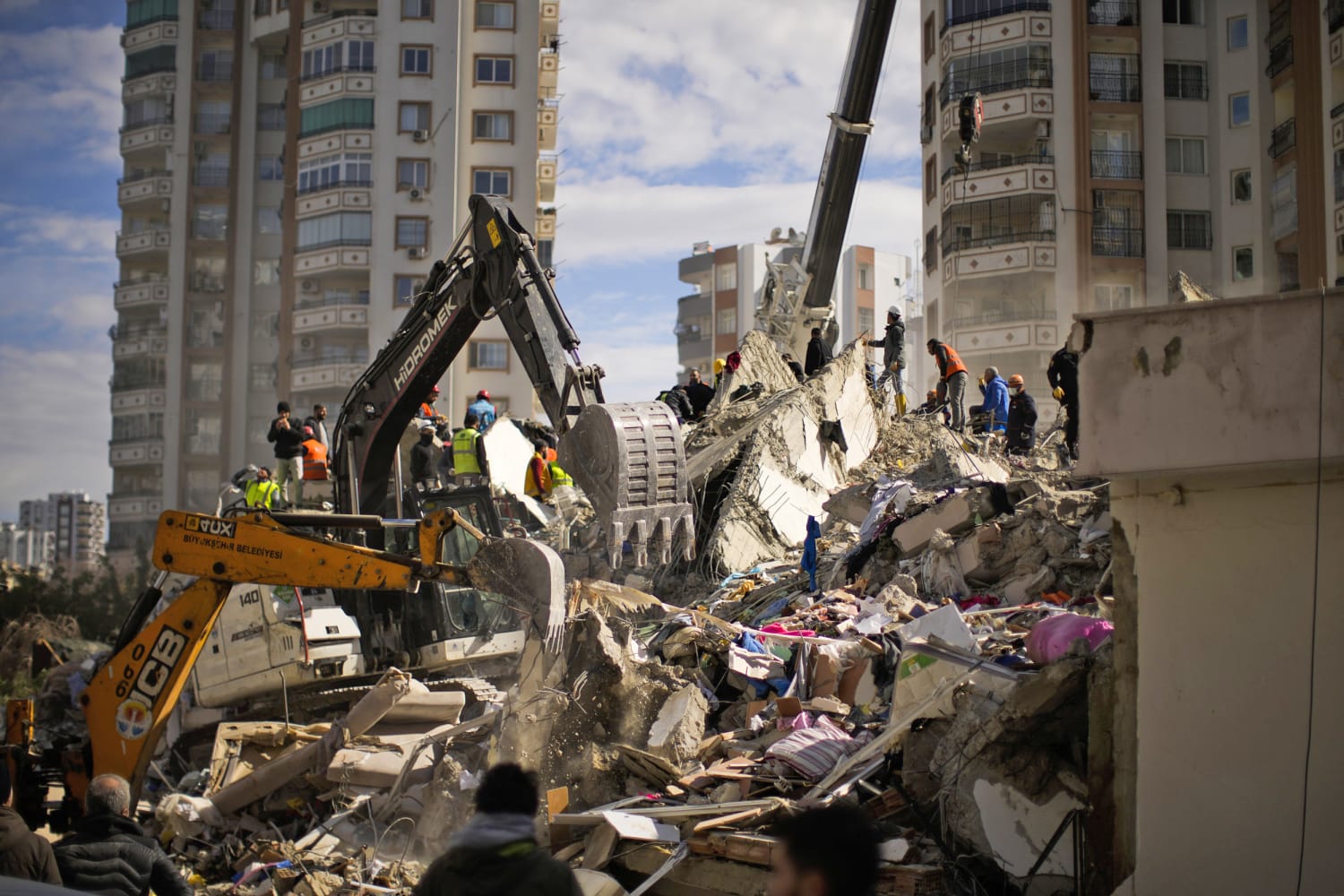

The causes of major earthquakes like the 7.8-magnitude temblor that hit Turkey and Syria on Monday are well understood. That doesn’t make them easier to predict.
Despite advances in both science and technology, it remains virtually impossible to know precisely when and where earthquakes will occur.
“Earthquake prediction has always been kind of a holy grail,” said Wendy Bohon, an earthquake geologist who works as a communications strategist at NASA’s Goddard Space Flight Center in Maryland. “If we could tell people exactly when an earthquake was going to happen, we could take steps to mitigate against it. But Earth is a very complicated system.”
Part of the challenge is that the very nature of earthquakes makes them unpredictable events. When one does occur, it happens quickly.
“An earthquake is not like a slow-moving train that eventually picks up speed. It’s a sudden, accelerated event,” said Ben van der Pluijm, a professor of geology at the University of Michigan.
Earthquakes also tend to strike with little to no warning. Though scientists have investigated potential precursor events — everything from shifts in subsurface sounds to potential increases in a region’s seismic activity to changes in animal behavior — they have so far been unable to pinpoint any consistent signals that shaking is imminent.
The lack of any clear pattern makes it difficult to create reliable forecasts akin to weather reports.
Additionally, the processes that underpin earthquakes — the mashing and colliding of tectonic plates and the energy that builds up as a result — tend to play out over long periods of time. Scientists can, for instance, gauge that an earthquake will likely strike an area some time in the next 200 years, which may be specific on geologic timescales. On human time scales? Not so much.
“We have an incredibly good idea of where we expect earthquakes, and even the sizes that we can expect for large earthquakes in these areas, but that does not help us to narrow that down to a human timescale,” van der Pluijm said.
The U.S. Geological Survey is even more blunt on the topic. “Neither the USGS nor any other scientists have ever predicted a major earthquake. We do not know how, and we do not expect to know how any time in the foreseeable future,” the agency said on its website.
Still, there are ways to prepare. The USGS has developed an early-warning system called ShakeAlert that detects when a significant earthquake has occurred in California, Oregon and Washington and then issues radio, television and cellular alerts saying that strong shaking is imminent. In most cases, the alerts offer only a few seconds of warning, but that time can be extremely valuable, said van der Pluijm.
“Twenty seconds sounds very short, but it’s enough time for you to find a place under a desk to take cover,” he said. “It’s not a prediction, but ShakeAlert is a huge step forward because it can minimize the inevitable impact.”
One of the most important ways to prepare for an earthquake is to be aware of the risks, Bohon said. For policymakers, this means ensuring that critical infrastructure is protected in earthquake-prone areas.
“What we need to do is to make sure we understand what can happen and build to withstand that,” she said. “We have to make sure people know what to do. We have to make sure that our cities are able to be resilient in the face of those hazards so that we don’t just survive the earthquake, we can survive in the aftermath.”

 Latest Breaking News Online News Portal
Latest Breaking News Online News Portal




